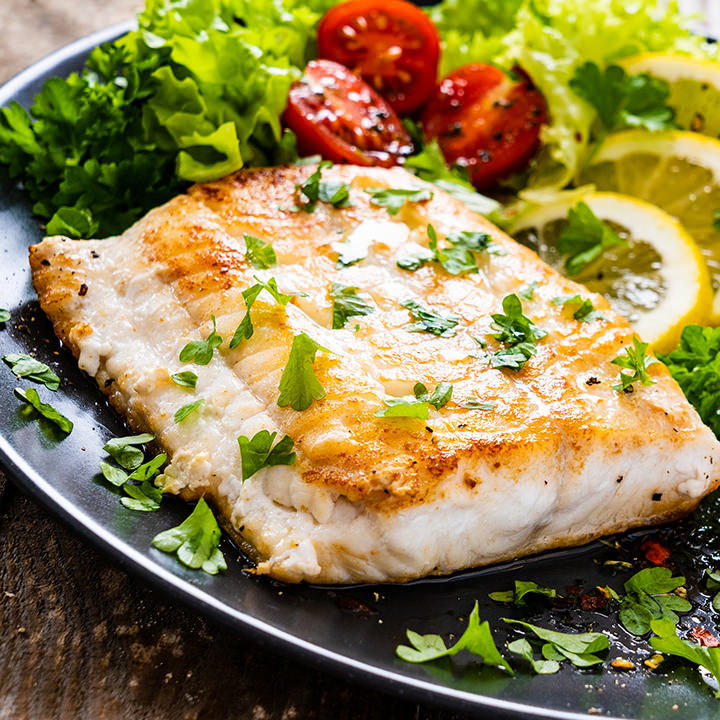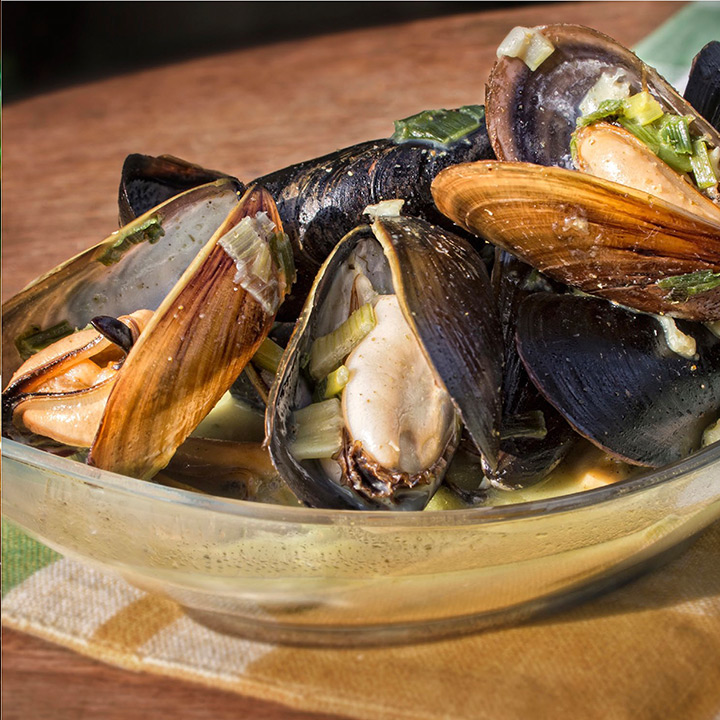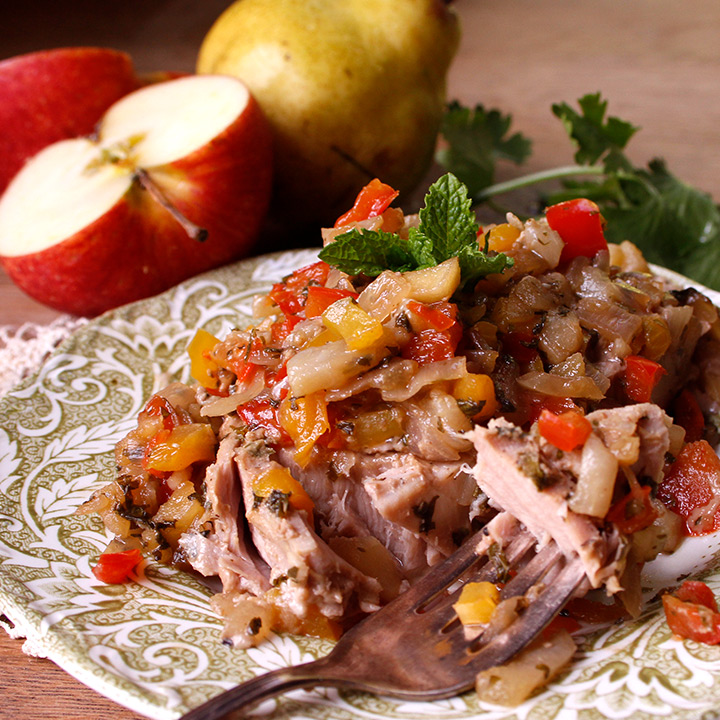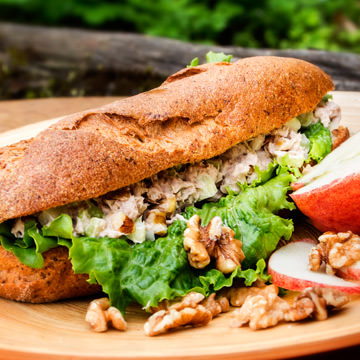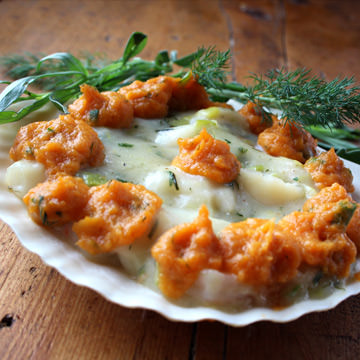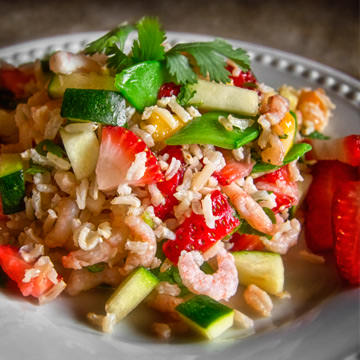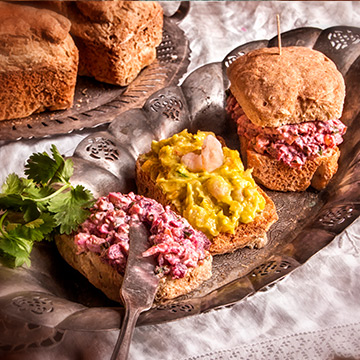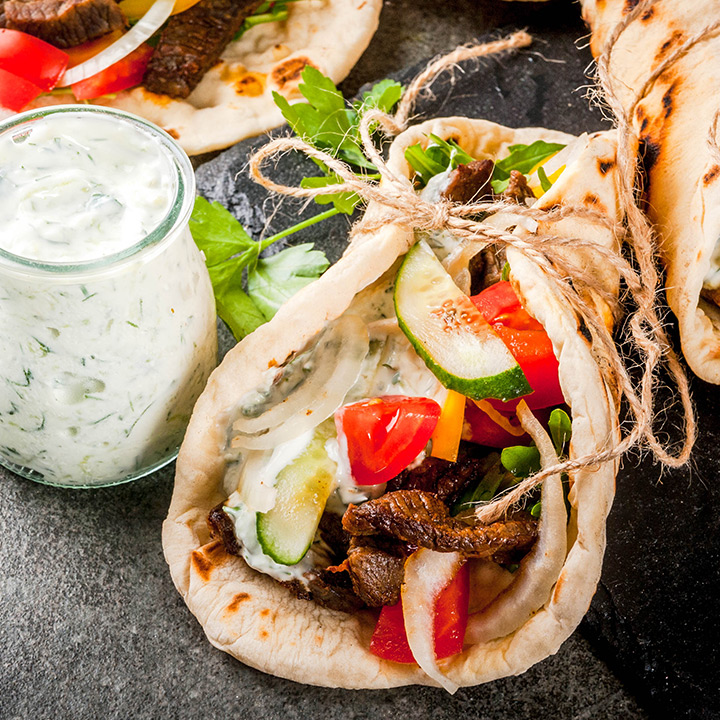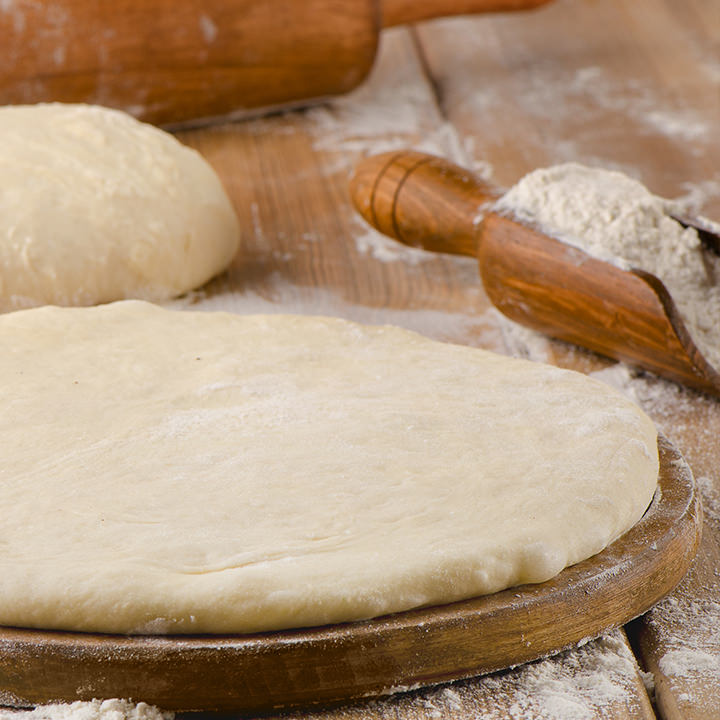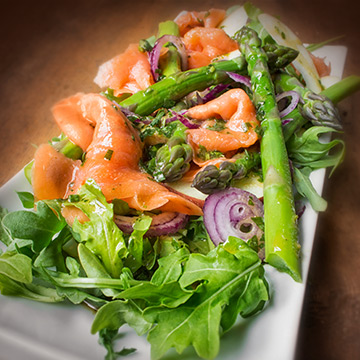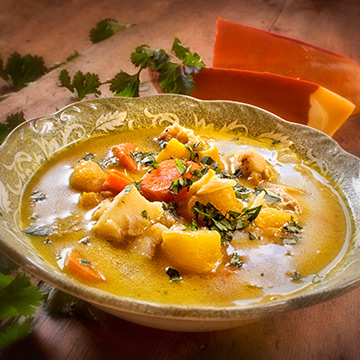Leek smoked salmon Pissaladière Recipe Gluten-free, dairy-free (casein-free) and hypotoxic
PORTIONS: 6
ORGANIC INGREDIENTS
Pizza dough:
Toppings:
- 65 g (1/3 cup) light olive oil
- 2 large red onions cut in half, then finely sliced
- 1 leek (white part only), cut into thin rings
- 15 ml (1 tbsp) dried basil
- 1 ml (1/4 tsp) salt
- 0,5 ml (1/8 tsp) pepper
- 2 garlic cloves, crushed or minced
- Around 227 g (1/2 lb) smoked salmon or smoked trout (cold-smoked or hot-smoked, your choice)
- Sliced black olives, to taste (for serving)
- Freshly chopped basil, to taste (for serving)
PREPARATION
Pizza crust:
- Prepare the pizza dough according to the recipe. After the first rise and kneading, divide the dough into 4 balls. Place them on a 25 cm x 38 cm (10" x 15") baking sheet (either oiled or lined with parchment paper). Using your hands, flatten the balls so as to cover the entire sheet.
Toppings:
- Conventional method : Preheat the oven to 180 °C (350 °F).
Hypotoxic method : Pre 110 °C (230 °F). - In a large skillet, heat the oil. Add the onion, leek, basil, salt, and pepper and cook on low heat for 10 minutes, stirring frequently. Add the garlic, cook for 2 more minutes.
- Spread the onion and leek confit on the pizza crust (or on the 2 pre-cooked ones) then add the smoked salmon (or smoked trout).
- Cook on the oven's middle rack for about 20 minutes (conventional) or 45 to 60 minutes (hypotoxic) until the crust is golden. Check the underside, as well.
- When serving, garnish with olives and basil, to taste.

Imagine yourself on the Mediterranean coast as you enjoy Cuisine l’Angélique's rendition of this wonderful specialty.
WHAT IS PISSALADIÈRE?
Pissaladière is a regional specialty of the Côte d’Azur, more specifically, the city of Nice.
The unusual name comes from Occitan, which is the historic language of the South of France.
Traditionally, the onions for this dish were seasoned with a salted fish sauce (in Occitan: peis = fish, salat = salted, hence "Peisalat").
"Peisalat" became "Pissala" for the preparation of "Pissaladiero" (in the dialect of Nice), which then became Pissaladière in modern French.
















